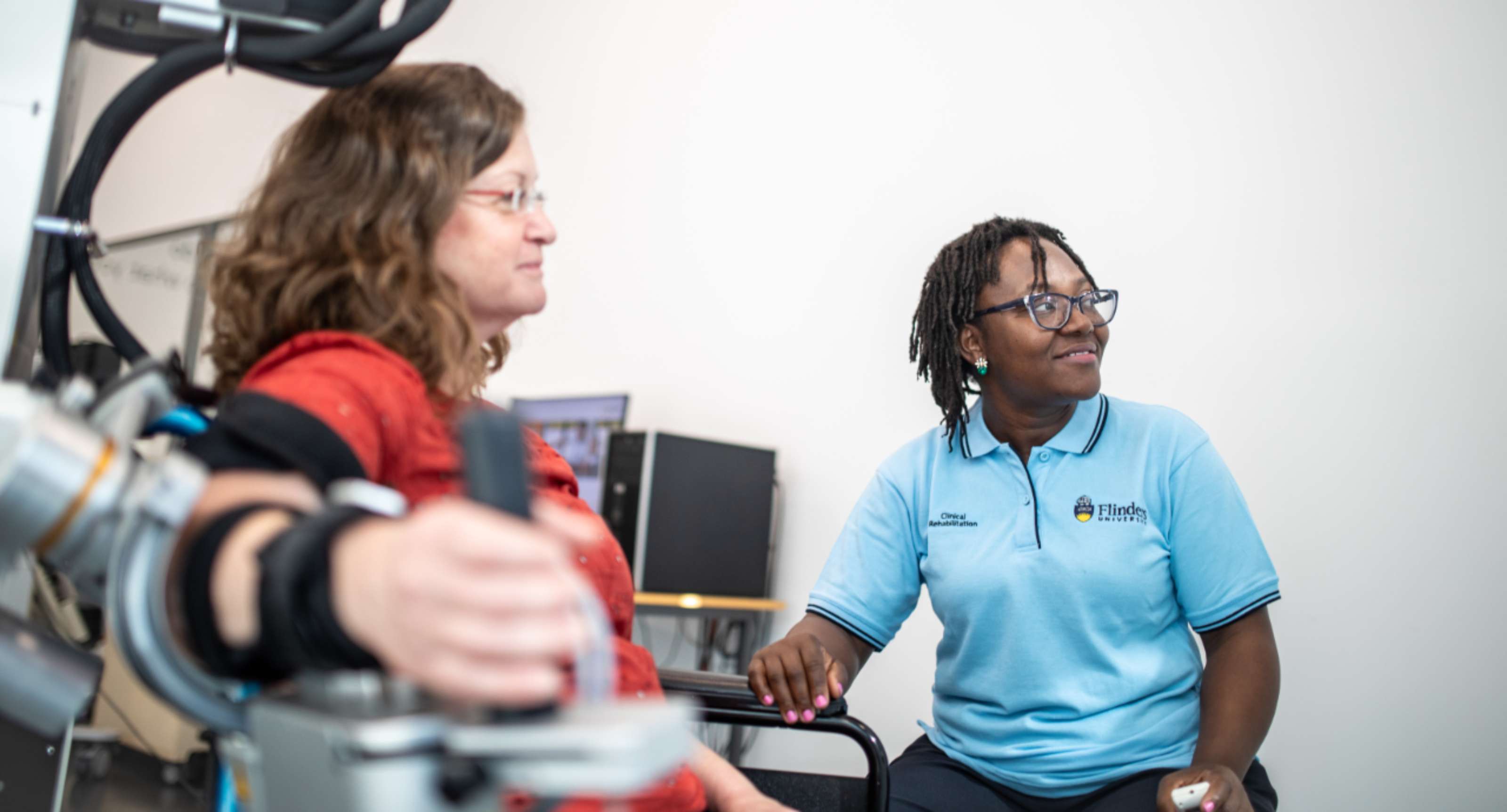
With a passion for helping others and pursuing evidence-based research, Ghana native Bridget Numarce (MClinRehab ’21) decided to undertake a postgraduate degree at Flinders University.
The Master in Clinical Rehabilitation at Flinders allowed Bridget to improve her knowledge in evidence-based treatments and fine tune her interest in rehabilitation.
She felt that Flinders University was best suited to improve her existing knowledge and would allow her to upskill in rehabilitation.
“Flinders has the advantage of a person-guided knowledge acquisition and it aligned with my educational interests, so I chose to study there,” she says.
Through the Australia Awards Africa Program, Bridget was able to relish an important opportunity.
That opportunity gave her the chance to study in Australia’s world-class educational system and work with evidence-based treatments that were not available in her native country.
The Australia Awards Africa Program is an Australian Government assistance program that allows Africans who have undertaken prior study to access postgraduate education and training abroad.
The program aims to equip these individuals with the skills and knowledge needed to improve their home countries.
Bridget’s current career path was inspired by her auntie, who was a nurse.
Her visits to the hospital, where her auntie worked, left a significant impression and as a result this would have a big impact on Bridget’s future career.
“Seeing the amazing difference that health professionals make in people’s lives daily, I decided to be a medical doctor,” she says.
Before studying at Flinders’ College of Nursing and Health Sciences, Bridget undertook training at the University of Ghana.
While studying there, she decided that a change from medical science to physiotherapy would better suit her desire to work closely with patients through a person-centered approach.
“I changed from the medical doctor pathway into physiotherapy when I saw the patient-centredness of physiotherapy,” she says.
“Compared to medical doctors, they spend a lot more time with the patients.”
Studying physiotherapy may have added an extra year to her time at university, but it also helped her achieve her goal of bringing hope to patients.
“A doctor saves the life of a patient, but a physiotherapist saves a patient’s quality of life,” she says.
Bridget opened her first practice at the Komfo Anokye Teaching Hospital, a tertiary institution located in Kumasi, Southern Ghana.
She later moved to Ghana’s capital, Accra, to continue her practice at a local district hospital.
Moving to the district hospital allowed her to organise physiotherapy services for those who could not access these services early enough.
While upgrading her knowledge base at Flinders, she learnt to rise above her fears and prove her capabilities.
“Through the guidance provided by my lecturers, I have learnt to seek when I do not know and overcome my doubts in the process.”
Bridget believes that her master’s degree is helping her to think critically in any circumstance and is allowing her to engage rehabilitation patients in a better way.
She is also using evidence-based knowledge to inform her decisions and guide her career aspirations.
From her master’s, Bridget aims to align patient values with her physiotherapy rehabilitation. She also aims to align rehabilitation with sound evidence-based research.
Bridget will return home to Ghana once she has completed her studies but has not ruled out a return to Australia.
“I am hopeful of coming back to Australia in line with my academic aspirations,” she says.

